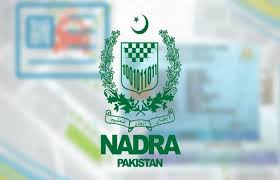In a powerful public advisory, the National Database and Registration Authority (NADRA) has urged Pakistani citizens to exercise heightened caution in the wake of increasing reports of identity theft, data fraud, and misuse of personal information by malicious actors. NADRA has warned that fraudsters and scam networks are posing as official representatives, using cloned websites, counterfeit mobile applications, and unauthorized agents to extract sensitive details from the public often with devastating consequences for victims.
According to the advisory, criminals are targeting CNIC (Computerized National Identity Card) data, biometric fingerprints, and other personal identifiers. These data points are being exploited not just to create fake identities, but to commit financial fraud, access unauthorized benefits, or open accounts in the name of unknowing citizens. Many individuals have reported receiving SMS messages or phone calls promising cash prizes, fake subsidies, or urgent updates requiring verification of CNIC details tactics used to lure victims into sharing private data.
NADRA has strongly advised the public not to submit CNIC photocopies, fingerprints, or any form of biometric data to unverified persons, retailers, or mobile apps. In most legitimate cases, NADRA requires presentation of the original CNIC, and there is no legal obligation to provide photocopies unless officially requested by a government office, financial institution, or law enforcement body. Moreover, the use of fake NADRA-branded applications available on third-party platforms has become a growing concern, with these apps harvesting sensitive data under the guise of offering quick services.
To combat this digital threat, NADRA has encouraged users to rely solely on the official “Pak Identity” mobile application, available on authentic app stores and verified through NADRA’s website. The app provides secure access to NADRA services such as online ID card applications, biometric verification, and document tracking, all backed by state-level encryption and user authentication measures.
The authority also reminds users to inspect SMS senders, website URLs, and app publishers closely. Any service asking for CNIC information, OTP codes, biometric confirmation, or bank account details without proper verification should be considered highly suspicious. NADRA does not send links through SMS or WhatsApp, nor does it authorize intermediaries to collect personal information outside its verified platforms.
In cases where individuals suspect misuse of their data or unauthorized attempts to access NADRA services on their behalf, they are urged to report the incident immediately to NADRA helplines or cybercrime wings of law enforcement. Quick reporting can prevent further damage and assist in apprehending culprits involved in these illegal operations.
Additionally, citizens are advised to regularly monitor their mobile SIM registrations, bank accounts, and any services linked to their CNIC. Using PTA’s SIM verification portal and regularly checking bank statements can help identify any unauthorized activities. For families, educating children and elderly members on the importance of data privacy is essential, as scammers often exploit the most vulnerable.
This public warning is part of NADRA’s broader effort to promote cyber hygiene and digital literacy across Pakistan. In an age where mobile-based transactions and digital governance are rapidly expanding, protecting personal data has become as important as physical security. Identity theft can not only lead to financial loss but can also damage reputations, affect employment opportunities, and, in severe cases, implicate innocent individuals in legal complications.
NADRA continues to work closely with the Federal Investigation Agency (FIA), Pakistan Telecommunication Authority (PTA), and digital rights organizations to track down cybercriminals and develop more robust protections for users. Citizens can also expect improved transparency, faster identity theft resolution mechanisms, and AI-based fraud detection tools in upcoming updates to NADRA’s digital services.
In conclusion, NADRA’s call for vigilance is not merely a formality it is a critical message to every citizen. In a rapidly digitizing world, personal data is a valuable asset, and the responsibility to safeguard it lies not just with institutions, but with every individual. By being aware, cautious, and digitally literate, the people of Pakistan can prevent themselves from becoming victims and contribute to building a safer, more secure digital ecosystem for all.



Comments (0)
No comments yet. Be the first to comment!
Leave a Comment